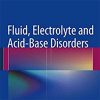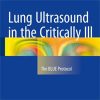Antimicrobial‑associated Harm in Critical Care
link.springer.comThe belief that, for the individual patient, the benefit of prompt and continued use of antimicrobials outweighs any potential harm is a significant barrier to improved stewardship of these vital agents.
Antimicrobial stewardship may be perceived as utilitarian rationing, seeking to preserve the availability of effective antimicrobials by limiting the development of resistance in a manner which could conflict with the immediate treatment of the patient in need.
There is evidence that reducing antimicrobial use in critical care can have a direct impact on individual patients, reducing mortality.
The mechanisms by which antimicrobials may worsen outcomes are varied, ranging from direct drug toxicity to dysbiosis, immune cell dysfunction to idiosyncratic drug reactions. Mitigation of these will require a multi-faceted approach.
However, the first step in dealing with the problem posed by antimicrobial-associated harm is widespread acknowledgement of this issue.
We need to develop an understanding that antimicrobial stewardship is about more than simply attempting to limit the development of microbial resistance and undertake research and quality improvement focusing on understanding and mitigating the serious adverse effects of these vital drugs.

















